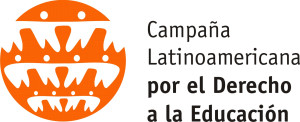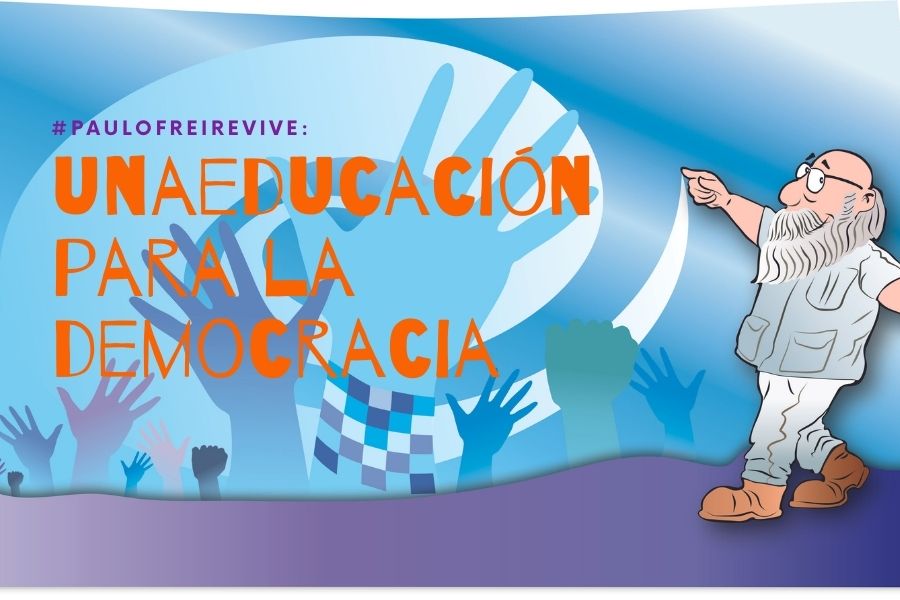
Paulo Freire´s Centenary: his legacy as educator is vital for strengthening Y&AE for democracy
September 1, 2021During September, the Latin American Campaign for the Right to Education (CLADE) developed a campaign through communication, awareness and dialogue activities in order to remember the importance of the legacy of the Brazilian educator Paulo Freire and reaffirm our option and struggle for a liberating education that strengthens democracy and promotes social transformation, towards a more just, equitable, sustainable and peaceful world.
CLADE is a plural network of civil society organizations, with presence in 18 Latin American and Caribbean countries and, from its founding moment, has assumed the thought and pedagogy of Paulo Freire as one of its main principles for the struggle for the human right to education in the region.
Emancipatory education, critical thinking, the transformation of educational environments and relationships into spaces for the collective construction of knowledge, reading of contexts, search for alternatives and transforming actions within the horizon of democracy, have been at the core of CLADE’s strategic work.
Within this framework and having in mind the centenary of Paulo Freire, celebrated on September 19, CLADE, articulated with the Latin American and Caribbean Campaign in Defense of Paulo Freire’s Legacy, organized by the Council for Popular Education in Latin America and the Caribbean (CEAAL), developed a month of communication, awareness and dialogue actions, to recall the importance of Freire’s legacy for the guarantee of an emancipating and critical education, which strengthens democracies in our continent and around the world.
Each week of the month, starting on September 3, CLADE members conducted and disseminated webinars, messages and materials in various formats shared through social media and other channels, as well as interviews and conferences, in order to highlight different concepts related to Freire’s legacy for the realization of an emancipatory and democratic education.
The last week of the campaign, from September 25 to 30, highlighted activities and messages about Freire’s legacy for the guarantee of Youth and Adult Education (Y&AE) as a key fundamental human right to promote sustainable development, human rights and, with them, our democracies.
In this framework, the Platform of Regional Networks for Youth and Adult Education in Latin America and the Caribbean, of which CLADE is a member, together with the Latin American Association of Popular Education and Communication (ALER), CEAAL, the International Federation Fe y Alegría (FIFyA), the Network of Popular Education Among Women in Latin America and the Caribbean (REPEM) and the International Council for Adult Education (ICAE), with the sponsorship of DVV International and Open Society Foundations, held a webinar on September 30, from 17h to 19h (Brazil time, GMT-3), to take up, disseminate and discuss the struggles, demands and proposals of the subjects and activists of Y&AE in Latin America and the Caribbean, on the way to the International Conference on Adult Education (Confintea) VII, which will take place in 2022 in Morocco.
The event, addressed, among other aspects, the importance of Freire’s legacy for the guarantee of Y&AE as a human right, popular and transformative education in the Freirean perspective and the situation of Youth and Adult Education in Latin America and the Caribbean in the context of pandemic.
See below de record of this event in English:
Freire’s contributions to Y&AE: towards sustainable development and social and environmental justice
Inspired by Paulo Freire’s perspectives and teachings, and with Confintea VII on the horizon, members of the Regional Networking Platform for Y&AE in Latin America and the Caribbean advocate for a new Y&AE, which should be popular, free, secular, inclusive, emancipatory and transformative. An education that shouldn’t have colonial, sexist, patriarchal and racist features.
In front of welfare and remedial approach that is usually given to Y&AE, we defend that this educational modality must be of quality, with cultural and social relevance. In front of onslaught of tendencies that attempt to privatize education, the right to Y&AE must be guaranteed free of charge. Their homogenizing vision must be overcome with the conception of Y&AE based on the valuation and exercise of education in its multiple expressions. From this point of view, Y&AE not only has a high educational value, but is also a commitment to the transformation of reality, to the change of social structures. Faced with different forms of discrimination and exclusion of a structural nature, this educational modality must contribute to lay the foundations for our societies, which shouldn´t be colonial, patriarchal and racist.
In times in which the motivations for continuing studies, mainly of people over 15 years of age, have been transformed and go far beyond the fulfillment of academic training needs, the priority of Y&AE should be community, permanent and popular education because it is carried out with and in all areas where human beings develop their activities. Furthermore, it takes community processes as the basis for educational objectives and is committed to the process of popular movements and the overcoming of all forms of oppression. Thus, Y&AE should stop concentrating on formal education and give priority to non-formal and popular education, promoting the social construction of knowledge in communities that foster intercultural, intergenerational and intersectoral encounters.
From this perspective, which is in line with Freire’s thought, the new understandings of Y&AE are based on conceiving human beings as subjects of education capable of producing the urgent and necessary changes for the construction of a more just and sustainable society.
For these reasons, and in compliance with the principles of lifelong education, governments should recognize education throughout life and for the diversity of the population as a human right, guaranteeing its full functioning through public policies, institutions and pertinent resources. Literacy, being the basis for the continuity and completion of studies, mainly of the sectors with higher levels of vulnerability, in current times, requires a broad and diverse vision and educational offer that guarantees the continuity of studies at all levels and areas of the educational systems, overcoming the traditional basic literacy approaches, recognizing learning developed in daily life and developing educational processes from the culture and mother tongue.
On the other hand, assuming the challenges of the current context of multiple crises and the effects of COVID-19 pandemic on the daily life of humanity, we propose to rethink an Y&AE whose principles should be the following: education to create harmonious relationships among human beings, community and mother earth, to enjoy health with integral well-being, and to contribute to develop a resilient society, which preserves the existence of all living beings; a liberating and transforming Y&AE, as part of social and popular movements and as a political-educational strategy and project, in such a way that people and communities become active subjects of the required transformations of the planet; education for the construction of a society free of all kind of discrimination, inequality and exclusion; a community and democratic Y&AE, for coexistence, participatory democracy and socio-community participation; an education based on social justice and political, social, cultural, economic and environmental rights of individuals, peoples and nature.
In other words, we defend an education and Y&AE for the encounter among cultures, that overcomes inequalities derived from colonialism, for intercultural dialogue and revaluation of collective knowledge. Based on Freire’s legacy, the transformative education we need, to build the world we want, is one that guarantees the right to know and the accumulated knowledge of humanity and science, with its use for the benefit of all people, from critical pedagogies and cultural dialogue for global citizenship, the defense of rights, peace, common goods and the care of our common home.
>> Read more in our regional statement towards Confintea VII (available in Spanish).
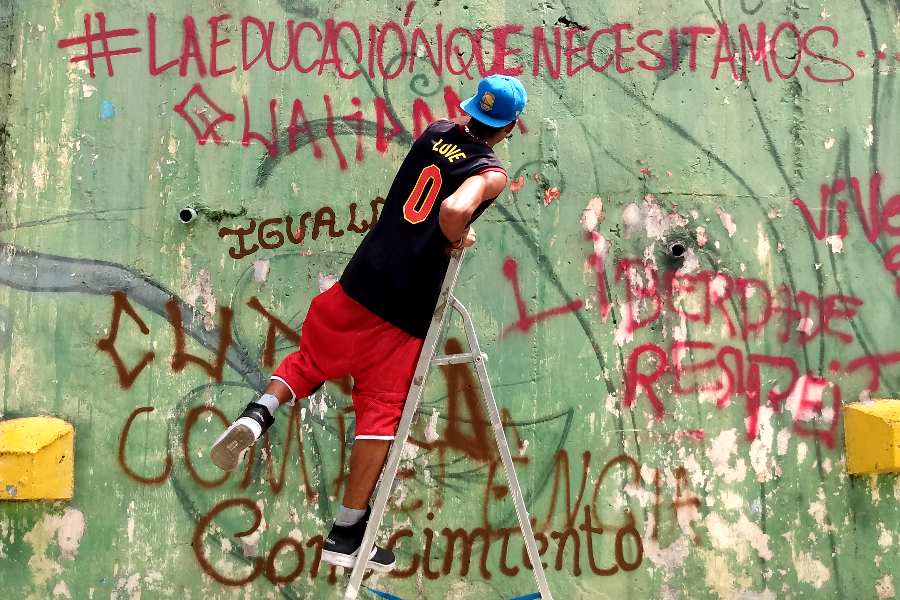
Students from Sao Paulo discuss the education they need for the world they want
November 4, 2019initiative “The education we need for the world we want”, CLADE was last Thursday, Oct. 31, at the Public School Professora Maria Augusta Corrêa, in Sao Paulo, Brazil. This public education center is one of the most diversified in the city, with a high percentage of migrant students, especially from Bolivia and Haiti.
(more…)
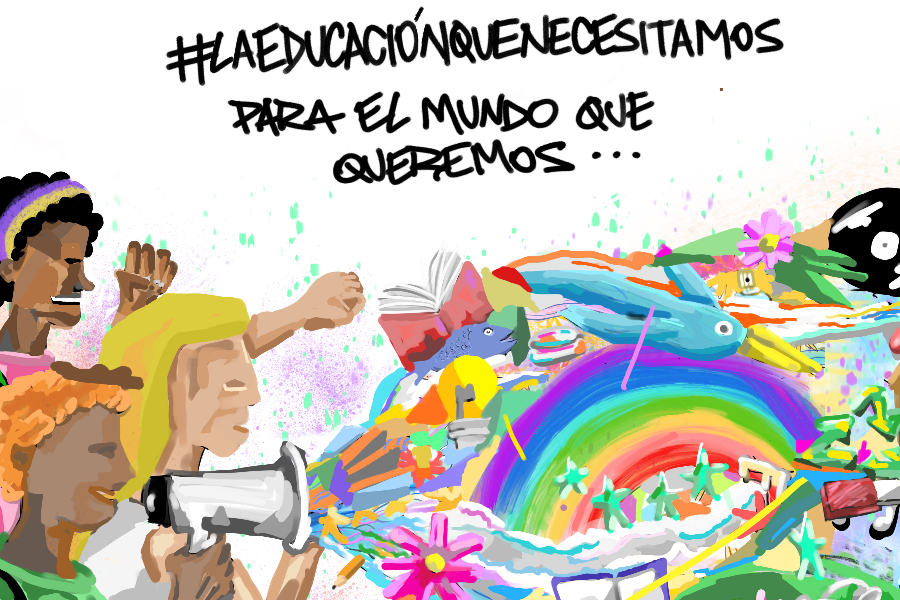
Youths from Latin America and the Caribbean invited to express what #TheEducationWeNeed is
October 30, 2019Partnering with young people and secondary school and university students from different countries in Latin America and the Caribbean, and with the support of the UNICEF Regional Office, CLADE promotes the initiative “#TheEducationWeNeed”
(more…)
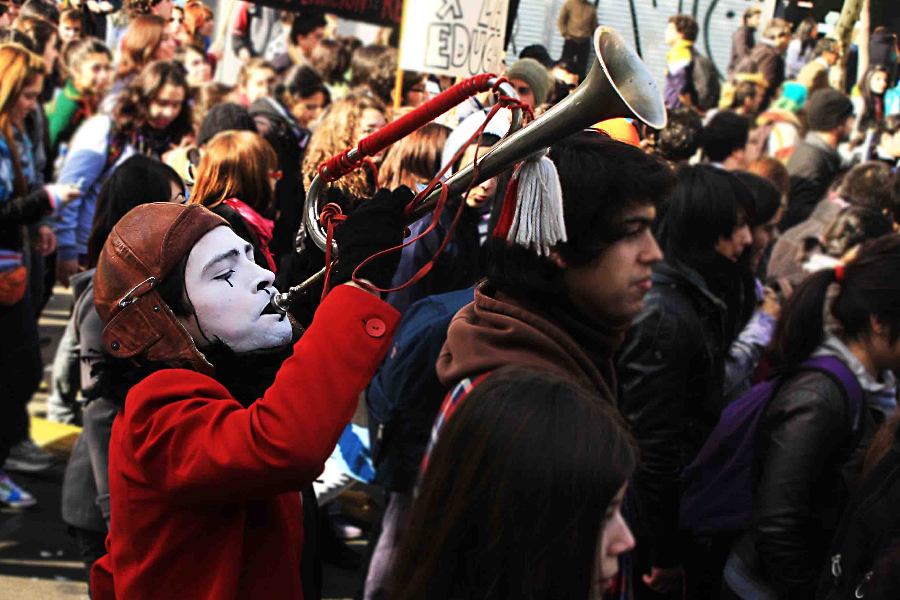
In new publication, CLADE shares experiences, strategies and lessons learned on the fight for the right to education
July 10, 2019The Latin American Campaign for the Right to Education (CLADE) launches the publication “Civil Society Advocacy for the Human Right to Education: Stories and Lessons Learned from Latin America and the Caribbean – Volume 3”.
The document is available:
In this volume, members of CLADE tell their experiences on the fight for the right to education: the challenges, advances and lessons learned, the strategies and recommendations that remain for other civil society movements and organizations. It presents cases of advocacy, communication, research and mobilization in 10 countries of Latin America and the Caribbean, as well as 3 regional experiences, driven by CLADE and 2 regional networks that are members of the Campaign: Espacio sin Fronteras and ALER.
The document is the result of a permanent effort by CLADE, to record and provide visibility to the journey of its members in their advocacy and capacity building efforts; and, on the other hand, to promote the reflection on their success and mistakes, in a process of self-evaluation and capacity building by the network.
“In times when we witness a growing democratic weakness in Latin America and the Caribbean, when laws are passed to hinder the right to demonstration and social participation, when social movements, activists and students are persecuted and criminalized, and there are so many restrictions to participation, it is worth showcasing civil society action and its positive impact on education policies,” says CLADE.
The Campaign distributed the publication, during its participation in the High-Level Political Forum, which takes place until July 18 in New York, with an emphasis on reviewing the status of compliance with Sustainable Development Goal 4, related to education.





